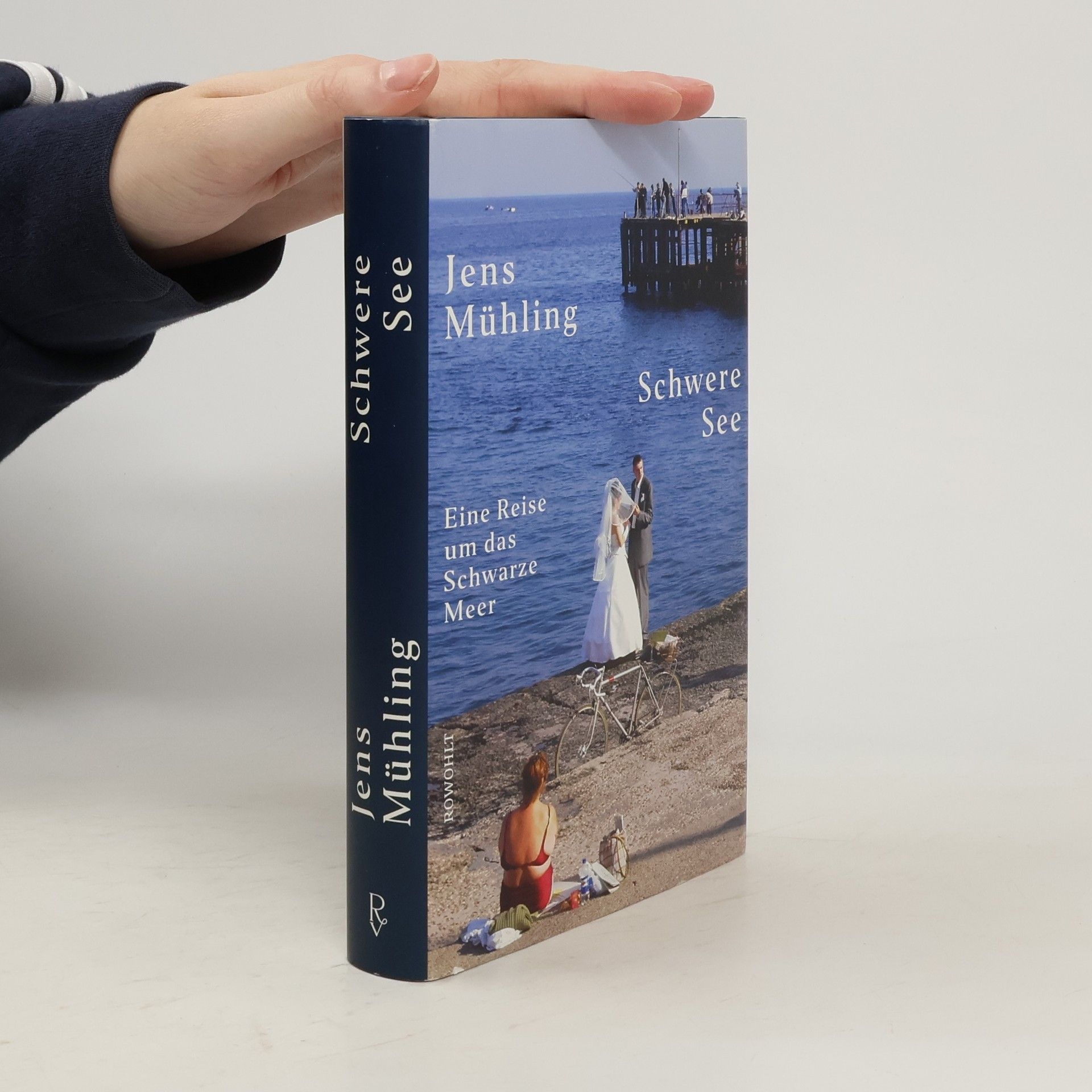Black Earth is a vivid first-hand account of an extensive journey through a contested nation.
Jens Mühling Livres






In this brilliant and humane journey, Jens Muhling explores the nations, societies and minorities jostling passionately around the Black Sea.
Jens Mühling erzählt vom Meer in unserer Mitte - und darüber, dass eigentlich jede Grenze eine fließende ist. Orthodoxe Russen, Georgier und Bulgaren treffen im Schwarzmeerraum auf jüdische Chassiden und Karäer, rumänische Katholiken auf ukrainische Altgläubige, muslimische Türken, Krimtataren und Abchasen auf alevitische Kurden und Zaza. Wirtschaftliche Interessen verbinden und trennen Schwarzmeeranrainer, politische Differenzen, unterschiedliche Geschichtsbilder und abweichende Zukunftsvorstellungen prägen ihren Blick auf das Gewässer, an dessen Ufern sie sich begegnen. "Mühling hat ein Faible für poetische Pointen, die so treffsicher sind, dass man ihm sogar verzeiht, wenn die eine oder andere ein bisschen zu blumig ausfällt. Letztendlich weben sich alle Einzelgeschichten in ein poetisches Gesamtbild. Das Ergebnis ist ein sehr diverses Porträt der Schwarzmeerbewohner und ihrer verworrenen Geschichten" (deutschlandfunkkultur.de)
Der junge Journalist vom Tagesspiegel hatte eine Meldung gelesen, in der von einer Altgläubigen die Rede war, die die Taiga nicht mehr verlassen wolle. Er macht sich auf die Reise, um Agafja Lykowa zu besuchen, ädie letzte Bewohnerin eines Russlands, das es nach ihrem Tod nicht mehr geben würdeä.
Das Porträt eines Landes in der Zerreißprobe. «Wird jemand für das vergossene Blut zahlen? Nein. Niemand.» Michail Bulgakow schrieb das in Kiew, in den Wirren des russischen Bürgerkriegs, als sich in der Ukraine im Wochentakt die Grenzen verschoben. Den Deutschen gehörte damals ein Stück des Landes, den Polen schon nicht mehr, obwohl ihnen früher ein sehr großes gehört hatte. Ein kleineres den Österreichern, den Litauern lange fast alles, den Russen später der Rest, den Sowjets am Ende das Ganze. Allein den Ukrainern gehörte nichts. Ein Jahrtausend lang lebten sie zwischen Grenzen, die sich unter ihren Füßen stetig verschoben. Und die nun wieder in Bewegung geraten sind. Als Staat existiert die Ukraine erst seit 1991; was sie vorher war, ist unter ihren Bewohnern so umstritten wie unter ihren europäischen Nachbarn. Jens Mühling erzählt von Begegnungen mit Nationalisten und Altkommunisten, Krimtataren, Volksdeutschen, Kosaken, Schmugglern, Archäologen und Soldaten, deren Standpunkte kaum unterschiedlicher sein könnten. Sein Buch schildert ihren Blick auf ein Land, über das wir kaum etwas wissen – obwohl es mitten in Europa liegt.
Berlin
Spaziergänge durch alle 97 Ortsteile
Jens Mühling durchstreift ganz Berlin, Ortsteil für Ortsteil. Fährt einfach hin und läuft los. Stürzt sich in Zufallsbegegnungen, erlebt Abenteuer. Es ist das ganze, das ungeteilte Berlin, das er erkundet, mit wirklich allen seinen Ortsteilen (97!), vom kleinsten (Hansaviertel) bis zum größten (Köpenick), vom einwohnerreichsten (Prenzlauer Berg) bis zum einwohnerärmsten (Malchow). Und er erfährt, dass sich Berlin wie eine fremde, neue, andere Stadt anfühlen kann, sobald man nur mal ein paar Haltestellen weiter raus fährt, als man es sonst tut.